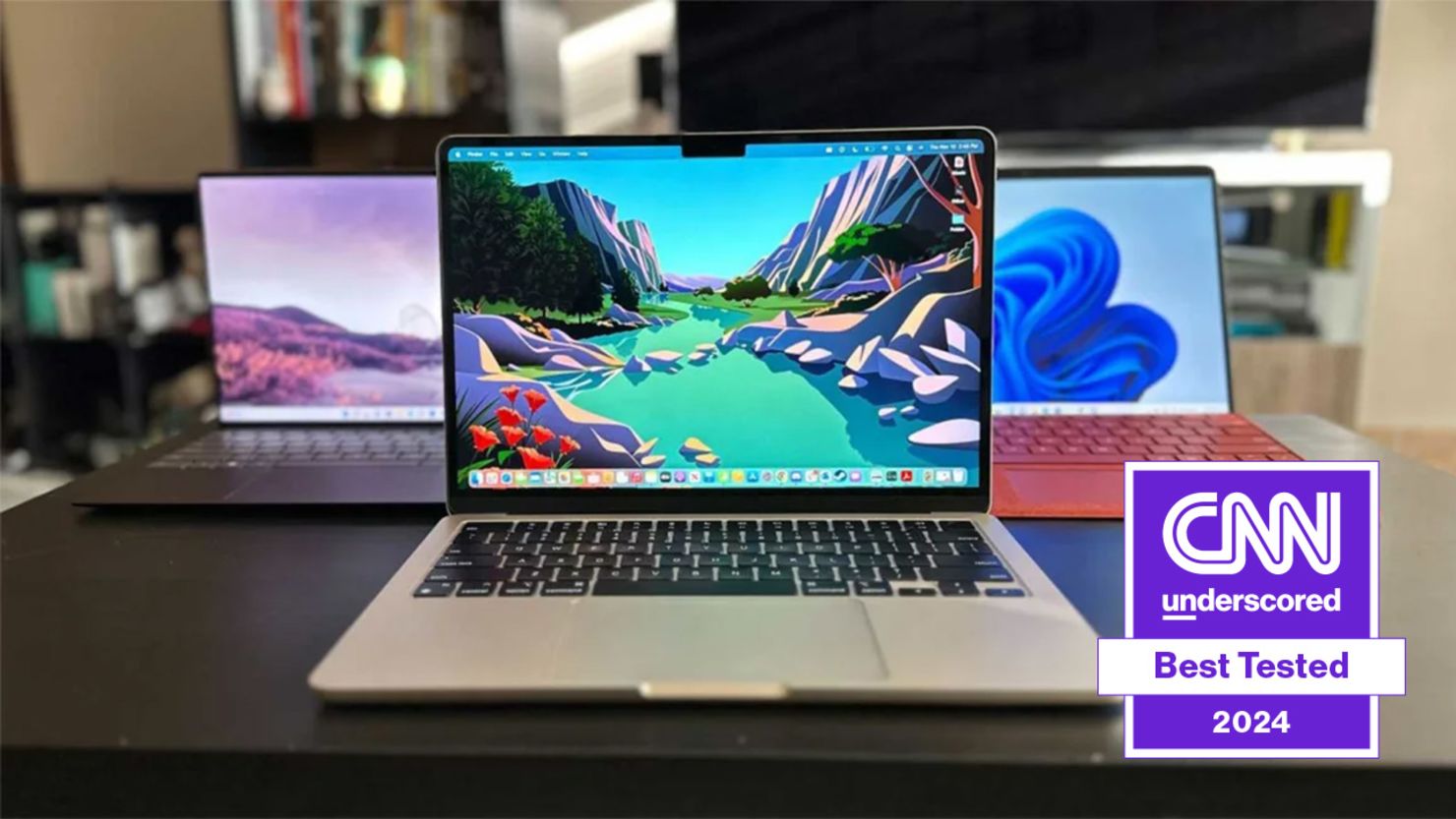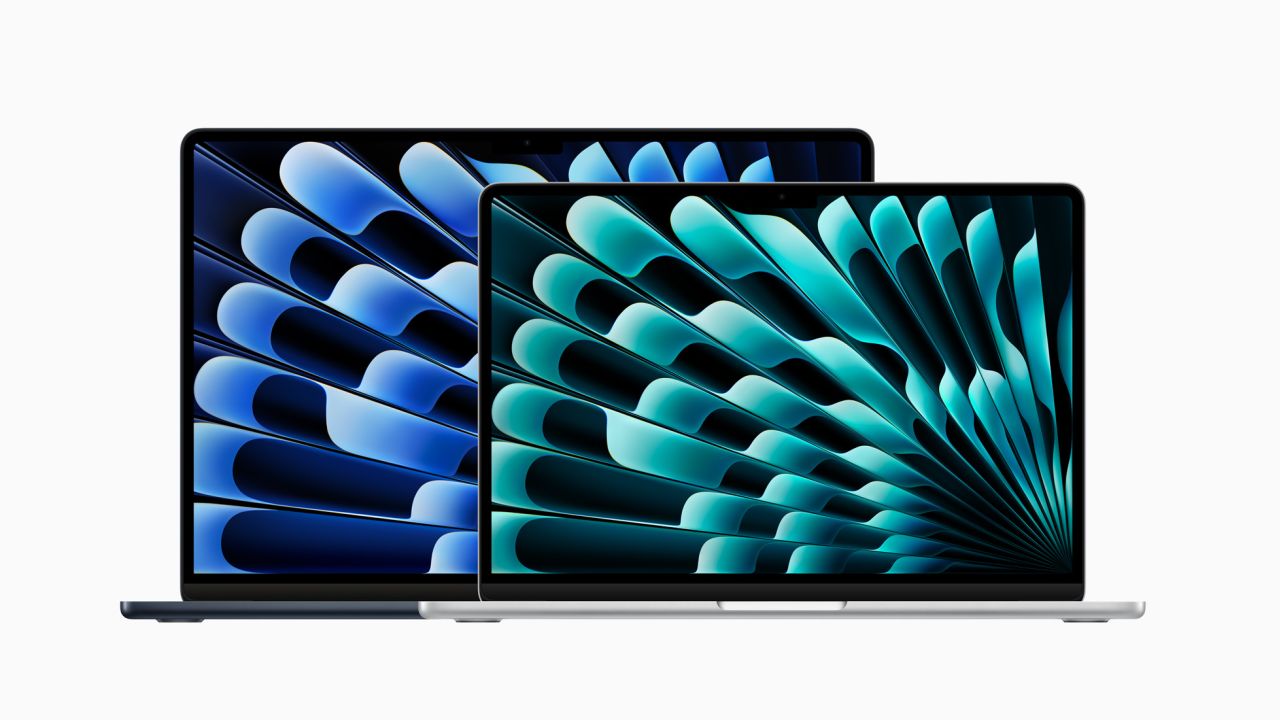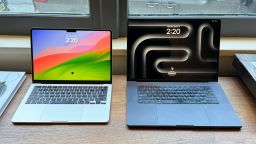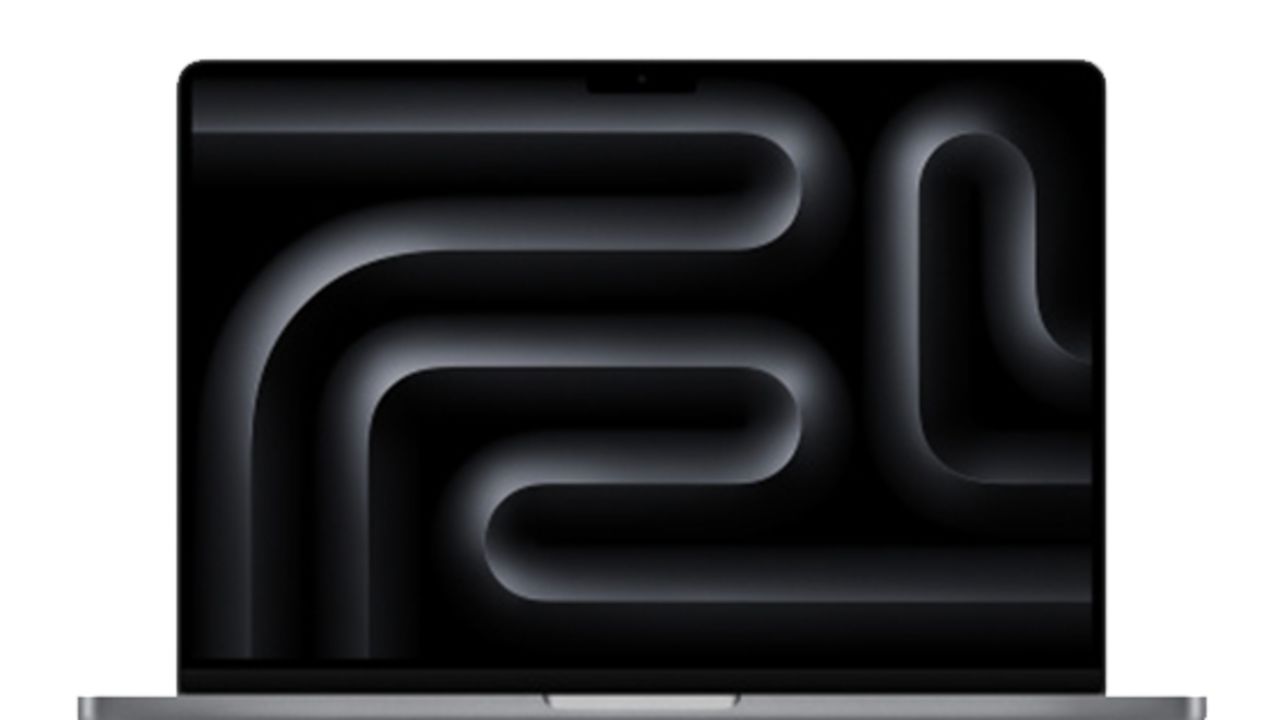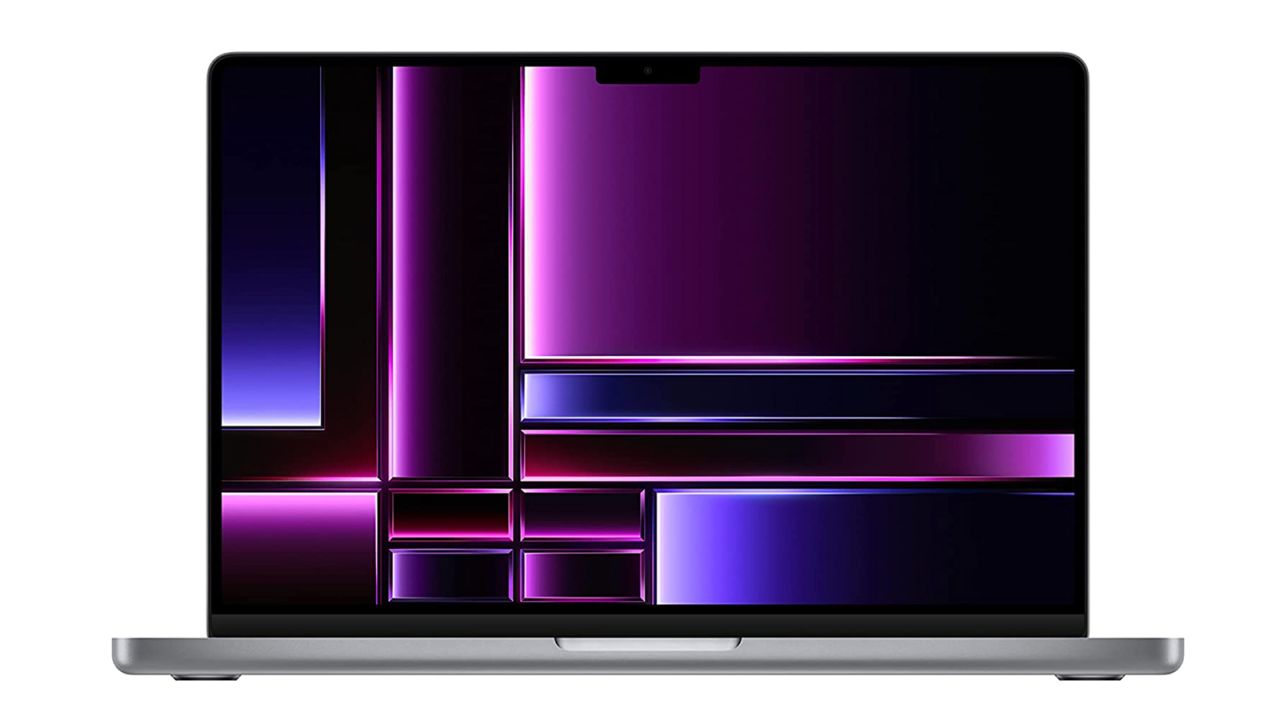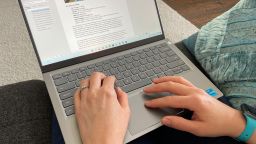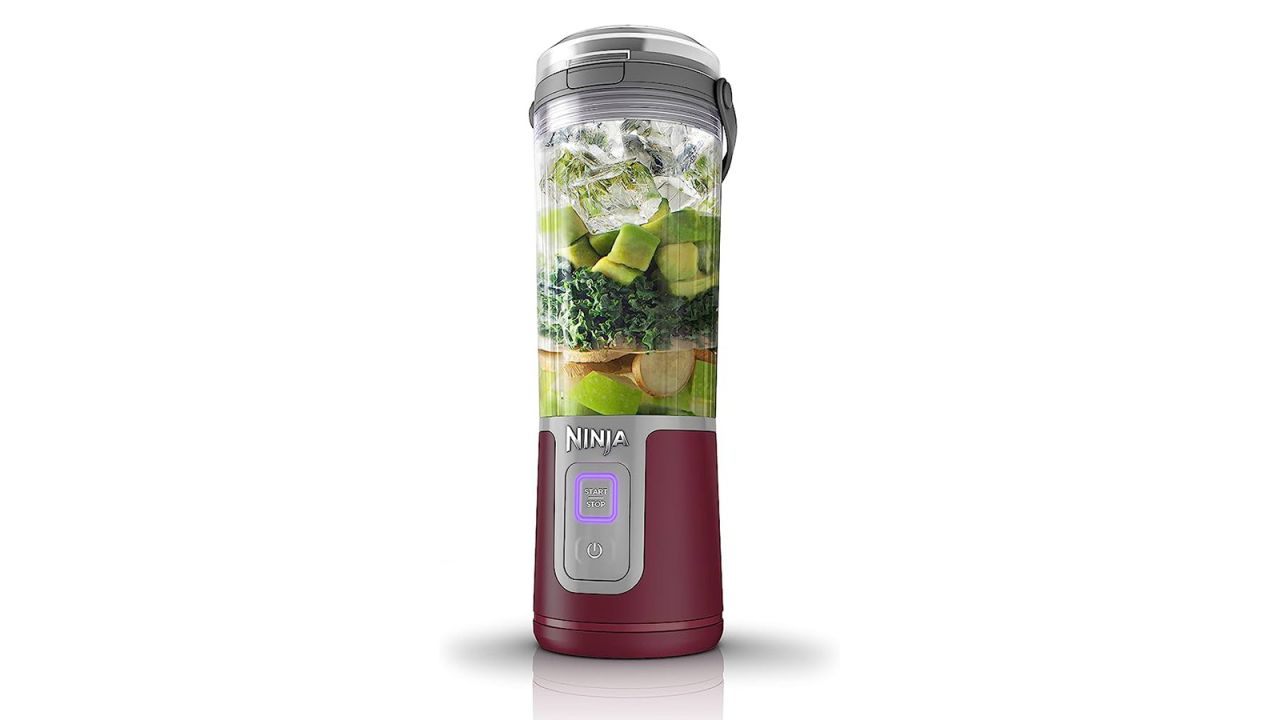The best laptops we tested
Best laptop: Apple MacBook Air M3
Best Windows laptop: Microsoft Surface Laptop (2024)?
Best upgrade pick: Apple 14-Inch MacBook Pro M3
Best 2-in-1 laptop: Asus ZenBook Duo (2024)
Best gaming laptop: Asus ROG Zephyrus G14
Whether you work from home, go into an office or just want something to keep yourself entertained, a good laptop is all but a necessity these days. But with so many brands and models to choose from, finding the right notebook for you can be overwhelming.
That’s where we come in. We extensively test the latest laptops on the market from the likes of Apple, Dell, Microsoft and Samsung in order to help you figure out what’s actually worth spending your money on. Whether you’re in search of the perfect MacBook, a tricked-out gaming notebook or just something basic for your daily emails, here are our picks for the best laptops you can buy now.
With a super-portable design, a great keyboard and display, long battery life and the fastest performance in its price range, the MacBook Air M3 is the best overall laptop for most people.
The best laptop: Apple MacBook Air M3
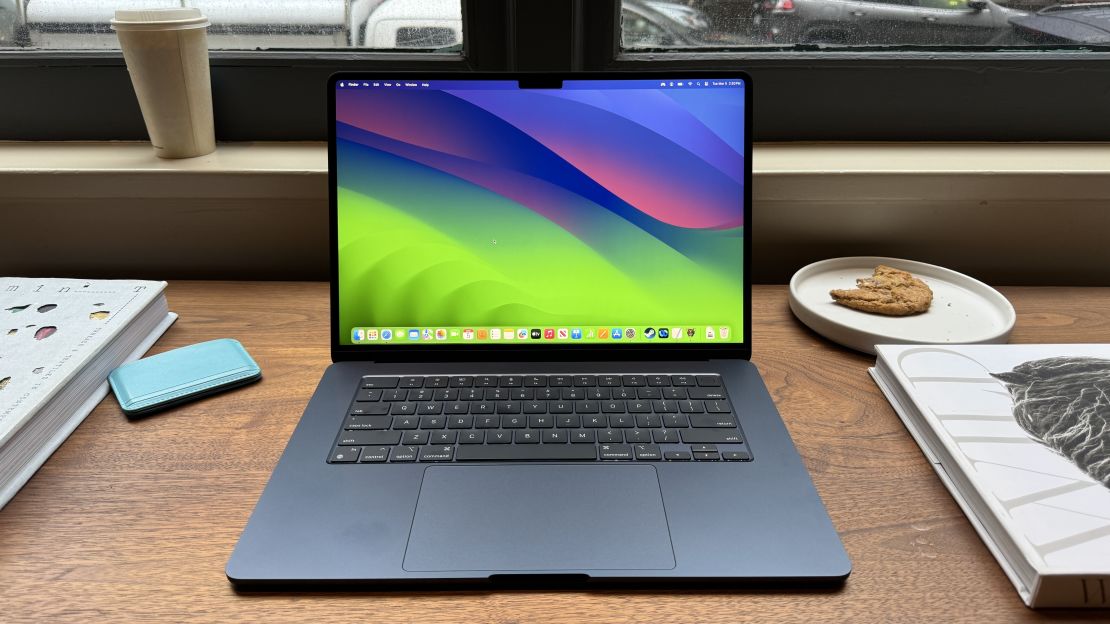
The latest MacBook Air is, once again, the best laptop for most people, and it earns that title for all the usual reasons. It’s reasonably affordable, comfortable to use, slim enough to take anywhere and faster than just about anything in its price range by a good margin.
Aside from its titular processor upgrade, the MacBook Air M3 is practically identical to its predecessor — and that’s a good thing. Everything we loved about the fully overhauled 2022 MacBook Air is intact here, including a more seamless screen, full-size function keys for easily making adjustments on the fly, a crisp 1080p webcam and a handy MagSafe charger that won’t send your laptop flying if someone trips on the cable. We were pleased to see this year’s model launch with 13- and 15-inch variations right out of the gate, as the latter has become one of our favorite big-screen laptops. The one notable physical change is a welcome one: The famously smudgy Midnight model is now a little less fingerprint prone, thanks to the same anodization technique used on the pricier Space Black MacBook Pro M3.
Of course, the biggest improvements to the new MacBook Air are under the hood, where the system’s new M3 processor predictably chewed through everything we threw at it — and sped well past the competition in most areas. The laptop handled our usual boatload of browser tabs and productivity apps without a stutter, and we saw some notable gains over the previous generation Air on benchmarks (though you’ll see a much bigger leap if you’re coming from an M1 or Intel-based MacBook). The MacBook Air M3 can even handle Mac games decently well; just be prepared to keep your graphics settings on the moderate side.
These updated internals also unlock a key new feature: You can now use the MacBook Air with two external displays at once. This does come with the caveat that your laptop lid has to be closed for both monitors to work, but it allowed us to work across two Apple Studio Displays without a hitch and is the kind of perk that makes the entry-level MacBook a pretty good Pro replacement.
That said, if you already own an Apple silicon-powered MacBook (and especially if you have an M2 model), you can probably skip this one. And if you’re looking to save some money, the 13-inch MacBook Air M2 is a better value than ever at its new $999 starting price. But if you want the best laptop money can buy without spending a fortune, it doesn’t get better than the MacBook Air M3.
Other laptops we recommend
The Surface Laptop made a massive jump for 2024, thanks to the Snapdragon X chips that enable its amazing battery life and snappy performance — all in a better-than-ever design with a great display and crisp webcam.
Need more power or more ports? The 14-inch MacBook Pro is the workhorse beast that’s worth investing in. Available with M3, M3 Pro or M3 Max chips, this is one of our favorite laptops ever, and it’s even cooler in the new Space Black color option.
Most 2-in-1s offer a detachable design for tablet and laptop modes, but the ZenBook Duo gives you more with twin OLED displays for a variety of handy modes. It also packs 14-plus hours of battery life and a great keyboard (unlike some competitors).
Looking at the ROG Zephyrus G14’s slim design and long battery life, you might have no idea that this laptop is actually built to game. Yet, its gorgeous OLED display, AMD Ryzen 9 processor and Nvidia RTX 4060 GPU will have your favorite titles looking great.
How our recommendations compare
| Display | 13.6-in., 2560 x 1664 Liquid Retina display |
13.8-in., 2304 x 1536?display |
14.2-in., 3024 x 1964 Liquid Retina XDR display |
Dual 14-in., 1920 x 1200 / 2880 x 1800 OLED displays |
14-in., 2560 x 1440 / 2880 x 1800 OLED |
|---|---|---|---|---|---|
| Processor | Apple M3 |
Qualcomm Snapdragon X Plus / Elite |
Apple M3 / M3 Pro / M3 Max |
Intel Core Ultra 7 / Ultra 9 |
AMD Ryzen 9 8945HS with NVIDIA GeForce RTX 4060 / 4070 graphics |
| Memory | 8GB / 16GB / 24GB |
16GB / 32GB |
8GB / 16GB / 24GB / 36GB / 48GB / 64GB / 96GB / 128GB |
16GB / 32GB |
16GB / 32GB |
| Storage | 256GB / 512GB / 1TB / 2TB SSD |
256GB / 512GB / 1TB SSD |
512GB / 1TB / 2TB / 4TB / 8TB |
1TB |
1TB |
| Camera | 1080p FaceTime HD |
1080p webcam |
1080p FaceTime HD |
1080p webcam |
1080p webcam |
| Ports | Thunderbolt 4 (2), MagSafe charging port, headphone jack |
Thunderbolt 4 (2), USB-A, Surface Connect |
Thunderbolt / USB 4 (2) (M3) / Thunderbolt 4 USB-C (3) (M3 Pro and Max), SDXC card slot, HDMI port, MagSafe charging port, headphone jack |
Thunderbolt 4 (2), USB-A, HDMI, headphone jack |
Headphone jack, HDMI 2.1, 2x USB-A, 2x USB-C, microSD memory reader, power adapter port |
| Battery life (rated) | Up to 18 hrs. |
Up to 20 hrs. |
Up to 17 hrs. |
Up to 13.5 hrs. |
Up to 10 hrs. |
| Size and weight | 12 x 8.5 x 0.4 in., 2.7 lbs. |
11.85 x 8.67 x 0.69 in., 2.96 lbs. |
12.3 x 8.7 x 0.6 in., 3.4 lbs. (M3); 3.5 lbs. (M3 Pro); 3.6 lbs. (M3 Max) |
12.34 x 8.58 x 0.57 in., 3.64 lbs. |
12.2 x 8.7 x 0.6 in., 3.3 lbs. |
| Price | $1,099 at Apple | $1,000 at Best Buy | $1,599 at Apple | $1,449 at Amazon | $1,300 at Best Buy |
How to choose the right laptop for you
While there are a number of factors to consider when choosing the right laptop, we advise that you start by figuring out how much display you need. Most laptops are available in display resolutions ranging from 1080p to 4K (3840 x 2160) and in screen sizes from 13 to 17 inches. Many Windows machines also offer optional touch displays.
We think a 13- to 15-inch laptop at 1080p is the sweet spot for most people, as you’ll get very good clarity and a decent amount of real estate within a machine that’s still fairly portable and reasonably priced.
Recommended specs
- Display: 13 inches to 15 inches at 1920 x 1080.
- Processor: 13th- or 14th-Generation Intel Core i5 or i7, AMD Ryzen 5 5000 or Apple M1/M2/M3.
- RAM: 8GB or more.
- Storage: 512GB or larger solid state drive.
- Ports: At least two USB-C connections.
A higher screen resolution means you can see more detail when using apps and watching movies, or get more screen real estate for apps (assuming you are willing to look at very small text), but it can also drive the price of a laptop up considerably. So, a 4K display (or alternative display technology options like OLED, also available in very high screen resolutions) makes the most sense if you do a lot of graphics work or use your laptop as your main entertainment screen for movies and TV (though you’ll get the most benefit if you choose a 15-inch or larger display). Also think about how you’ll be using your laptop: A slim 13-inch notebook is ideal for working on the road, while a 17-inch machine isn’t quite as portable but will get you more screen space (and possibly more power) for working at your desk.
Many Windows-based machines also offer optional touch displays, but we generally feel that you can skip this to save some cash. Unless you’re looking to carry only one device and are specifically looking for a 2-in-1 laptop that doubles as a tablet, we think a dedicated tablet does a better job at touch, and touch doesn’t add that much functionality to a laptop.
Many modern laptops are light on connectivity options, usually packing a handful of USB-C ports in addition to a microSD card reader and a headphone jack. If you want a laptop that can connect to USB-A gadgets (and chances are you have a lot of those) as well as traditional HDMI cables for external displays, you’ll want to check out some of the thicker, business-class Windows notebooks out there from manufacturers like Acer and Lenovo. Alternatively, you can pick up a USB-C hub to augment your Mac or Windows laptop’s connectivity options.
Windows laptops come with a swath of processor options, but we consider the latest Intel Core i5 or the AMD Ryzen 5 5000 series to offer a good amount of performance for everyday multitasking for the price. And to back up that processing power, we recommend opting for at least 8GB of RAM to keep all your apps running smoothly. If you’re someone who does heavy creative work such as video and photo editing, it’s worth considering Core i7/Ryzen 7 as well as 16GB to 32GB of RAM. And if you’re a gamer, you’ll need a laptop with discrete graphics, starting with at least an Nvidia RTX 4050.
Of course, you’ll also have to decide between Windows and MacOS, which largely comes down to personal preference. Windows can be found on the largest range of laptops, including budget notebooks and powerful 2-in-1 workstations, and offers a better selection of gaming software. Meanwhile, macOS is limited to a handful of Apple’s own laptops and is ideal for folks who already own lots of Apple products, thanks to its ability to sync up with your iPhone, iPad and Apple Watch. Windows laptops can be found for as cheap as a few hundred dollars, whereas MacBooks occupy a premium middle ground that starts at $999 for the MacBook Air or $1,599 for the higher-end MacBook Pros.
How we tested
As with every CNN Underscored review, we rigorously test devices both quantitatively and qualitatively. For laptops, we made the decision to benchmark first to get a standard for quantitative performance. If you’ve read our standalone laptop, tablet or mobile phone reviews, these tests will be familiar.
On Windows laptops, we performed GeekBench 5 and 6 and PCMark 10 tests. These run the laptops through a series of workflows and application processes, many of which you’d find yourselves (and we found ourselves) completing on a daily basis. For Mac laptops, PCMark 10 is not available, so Geekbench 5 and 6 were performed. If a laptop is gaming-capable, we run it through the Shadow of the Tomb Raider benchmark to see how it’ll hold up against many of the best PC games.
Regardless of operating system, we put each laptop through our standard battery test, which involves charging the laptop to 100%, setting brightness to 50% and engaging airplane mode to ensure connectivity is off. We then loop a 4K video file with the sound set to 15% until the battery dies and the machine turns off.
The combination of battery and benchmark testing gives us a quantitative feel for the devices and a hard number for each that can be used for comparisons. We then used each laptop as our daily driver for work, play and entertainment tasks, testing the battery to see if it could last through a full day of tasks, watching a movie to get a feel for the display and, of course, running a bunch of different applications.
Other laptops we tested
Microsoft Surface Pro (2024)
Excellent battery life and snappy performance from the Qualcomm Snapdragon X Elite CPU make the latest edition of this venerable Microsoft Surface Pro a great laptop alternative. It loses points, though, for not including its keyboard by default and a few display oddities.
Framework Laptop 16
One of the most unique laptops we’ve ever tested, the Framework Laptop 16 is a modular notebook engineered for a longer life span. Not only can you upgrade its storage, memory, CPU and GPU on your own but you can mix and match its six ports and change everything from the keyboard to the bezel. Oh, and you can also replace its internal battery. As for why it didn’t make it to the top of the charts? As much as we admire what Framework is doing, too many little quirks (such as a webcam issue we hand-fixed) popped up during the testing process.
Dell XPS 14 (9440)
The latest edition of our historical top pick for best Windows laptops takes everything we love about Dell’s XPS line and puts it inside a risky design the company is going all-in on. So, while you still get great battery life, speedy performance and a comfortable keyboard (and can pay more for a gorgeous OLED display), Dell’s sliced off the traditional function keys for a capacitive row of sensors that light up with the volume, screen and hardware controls you expect. Also, the traditional touchpad is gone, replaced by a giant glass surface with no visual indicators, which can be a bit confusing. For those who can get used to these changes, the?Dell XPS 14?is a great laptop. It just feels like a slight regression as Dell looks for the most futuristic design it can find.
Apple 13-inch MacBook Air M2
Our previous pick for best overall laptop, the 13-inch MacBook Air M2 is a better value than ever at its new price point of $999 — and is still an incredibly fast and reliable laptop that’ll serve you well for years. However, if you can afford to spend a little extra, the M3 model gets you slightly more future-proofed performance and dual-monitor support.
Apple 14-Inch MacBook Pro M2
While it’s recently been updated with the M3 chip, Apple’s first?14-inch MacBook Pro of 2023 is still great for video editors, 3D artists, developers or any other kind of power user who could benefit from tons of processing and graphics muscle. The M2 Pro-powered 14-inch model can juggle demanding creative tasks without breaking a sweat and outperforms other already beastly M2 and M1 MacBooks by a good margin. And the option to upgrade to a higher-core M2 Max chip means that you can spec this laptop out with enough speed to handle just about anything. As our previous best upgrade pick, the 14-inch MacBook Pro M2 is still a good option for those willing to invest in a feature-packed and future-proof MacBook.
Apple MacBook Air M1
The MacBook Air M1 was our best Apple laptop pick for nearly two years running and is still one of the best laptops around. Its zippy M1 performance and long battery life continue to hold up against newer competitors, and its keyboard and display remain some of the best you can get at this price. However, it’s been officially phased out of the lineup as of March 2024, with the MacBook Air M2 taking its place as the go-to budget model. Unless you can find it for cheap at third-party retailers, most MacBook shoppers on a budget are better off with the M2 model.
Apple 13-Inch MacBook Pro M2
In terms of sheer performance, the?MacBook Pro M2?is one of the best laptops we’ve tested. Its M2 processor runs circles around anything in its price range and makes this machine ideal for intensive video editing and graphics work. It can also survive a full day of work on a single charge and endured close to an hour longer than the MacBook Air on our tests.
However, all this awesome power is stuck in a dated design that looks and feels exactly like the last few iterations of the 13-inch MacBook Pro. That means you’re getting a Touch Bar you probably don’t want, a meh 720p webcam and the same old 13.3-inch Retina display with thick black borders around the edges. Apple no longer sells this option, but if you want to save some cash or really like the Touch Bar, you can still get it at third-party retailers. But most folks considering the 13-inch MacBook Pro should either opt for the MacBook Air M3 — which has similar performance and a much better design for less money — or splurge for the far more expansive 14-inch MacBook Pro.
Microsoft Surface Laptop 5
The Surface Laptop 5 was an extremely close runner-up for the title of best Windows laptop, offering a big, beautiful and uniquely tall screen; a great keyboard; and strong overall performance and battery life. But the new Surface Laptop truly earns the win with its new chipset.
Microsoft Surface Laptop Go 2
The Surface Laptop Go 2 is a very good pick for students or folks on a tight budget, offering dependable performance and just about the best build quality you can find for the price. Though, realistically, you might want to get the slightly more expensive model that comes with a more usable 256GB of storage and fingerprint reader. When you factor that in, we think other options, like our best budget laptop pick in the Dell Inspiron 14, are a better overall value for Windows users.
Microsoft Surface Laptop Studio
In terms of sheer performance and versatility, the Surface Laptop Studio is arguably Microsoft’s best notebook yet. Thanks to its durable, flexible hinge, this 2-in-1 works well as a laptop for everyday multitasking, a sturdy drawing tablet and a stand-up display for giving presentations or watching movies.
It’s also the only Surface with optional discrete Nvidia graphics, making it ideal for demanding visual tasks and even some light PC gaming. However, with an expensive starting price that only gets higher if you opt for a dedicated GPU and more processing power, we’d only recommend this machine to artists, video editors and general power users. Microsoft just announced a Surface Laptop Studio 2, which we look forward to testing.
Microsoft Surface Go 3
The Surface Go 3 packs a full Windows 11 experience and a surprisingly good webcam into a tiny 10-inch tablet, which turns into a comfortable mini laptop once you attach a Type Cover keyboard. However, its performance can be frustratingly slow at times, and its alluring $440 starting price quickly balloons closer to $800 once you configure it with a keyboard and halfway decent processor.

